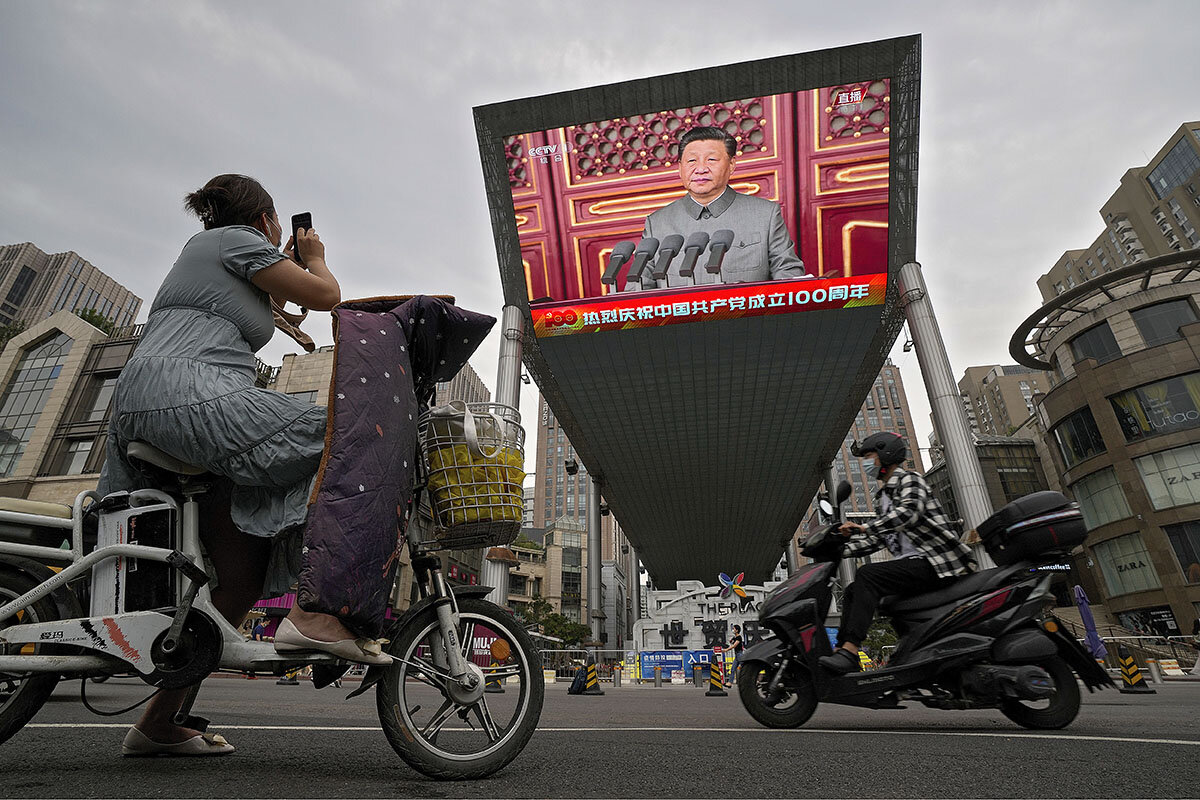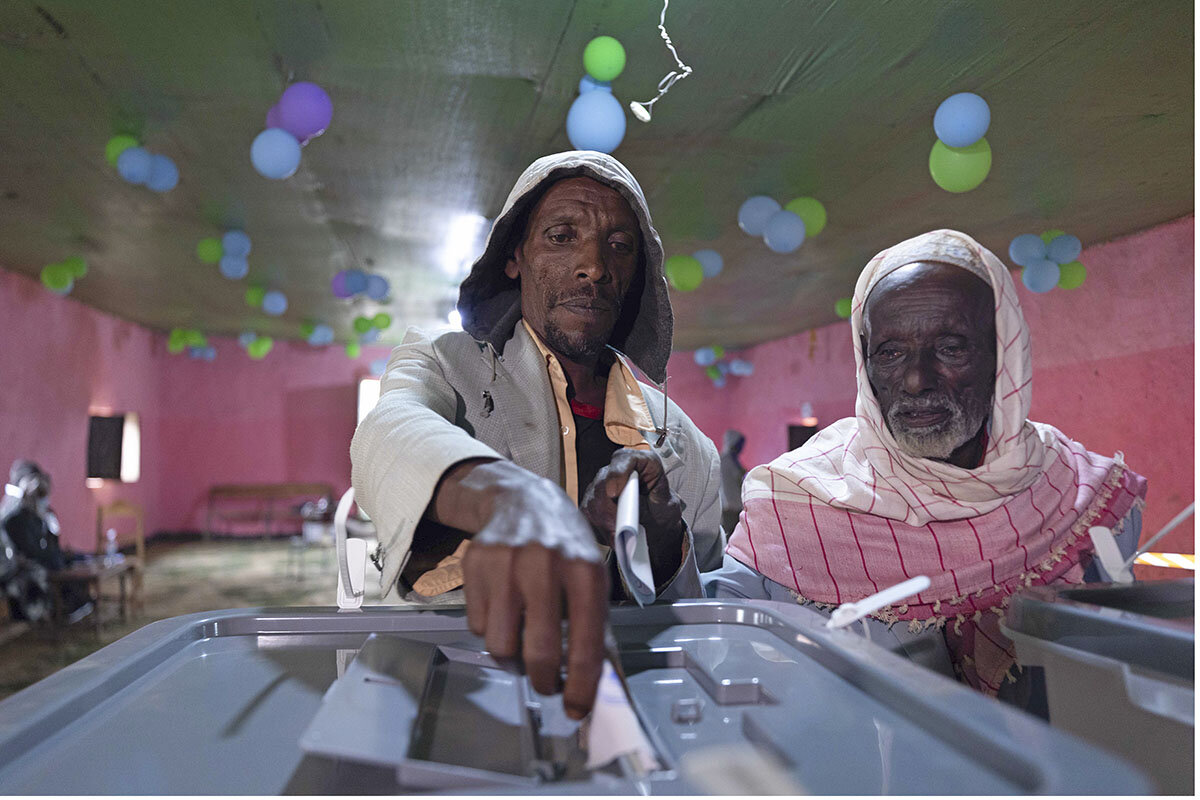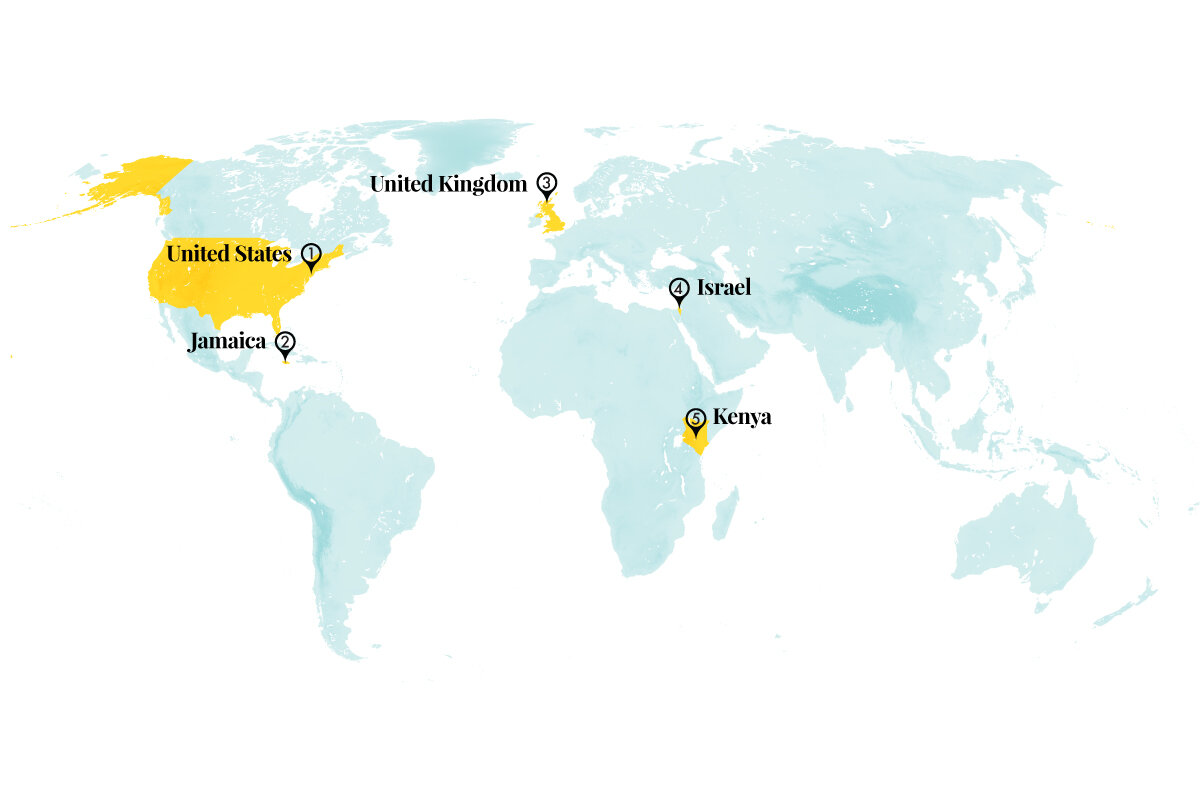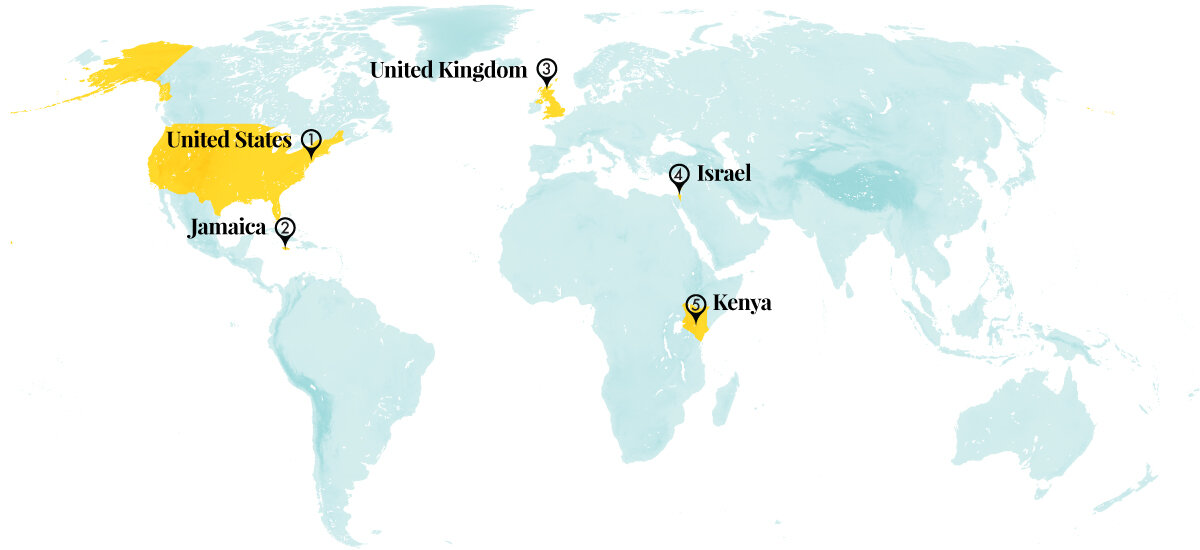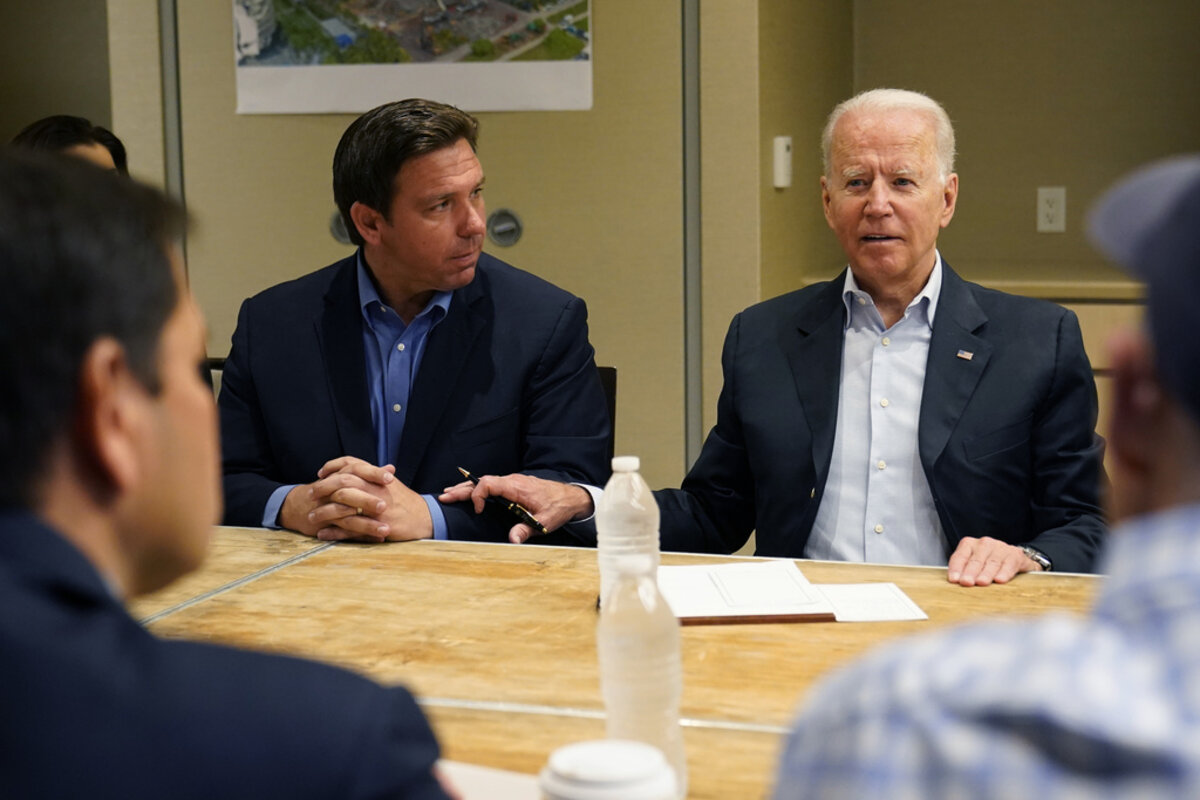The Voting Rights Act was passed in 1965 to protect minority voters. The Supreme Court ruled it was being too stringently enforced in one Arizona case, giving states freer rein to enact restrictive voting laws.



Why is ���Ǵ��� Science in our name?
Our name is about honesty. The Monitor is owned by The First Church of Christ, Scientist, and we’ve always been transparent about that.
The church publishes the Monitor because it sees good journalism as vital to progress in the world. Since 1908, we’ve aimed “to injure no man, but to bless all mankind,” as our founder, Mary Baker Eddy, put it.
Here, you’ll find award-winning journalism not driven by commercial influences – a news organization that takes seriously its mission to uplift the world by seeking solutions and finding reasons for credible hope.
About usAlready a subscriber? Log in
Already have a subscription? Activate it
Ready for constructive world news?
Join the Monitor community.
SubscribeMonitor Daily Podcast
- Follow us:
 Mark Sappenfield
Mark Sappenfield
When scientists use radio waves to peer under the ice cap at Mars’ south pole, they have no idea what they’re seeing. There is certainly something odd there. When the first images of the objects appeared three years ago, astronomers thought they were lakes – miles-long stretches of liquid water hiding beneath the Martian surface.
Now they’re not so sure. New data released this week by researchers at NASA’s Jet Propulsion Laboratory suggest the things are too near the surface to be liquid water. They sit at a depth where the temperature is minus 81 degrees Fahrenheit. Even salty water should be frozen in those conditions. Yet there they are, a tantalizing hint of a discovery that could hold alien life or otherwise reshape our understanding of Mars – or be nothing of consequence, really.
When Italian astronomer Giovanni Schiaparelli mapped Mars’ surface in 1877, he found curious formations he called “canals.” What were they? How did they form? The finding fascinated scientists and generations of science fiction writers in ways that still color our romance with the red planet. Discovery is science’s aim. But mystery is its allure.
Do lakes lie under the surface of the Martian south pole? Some day, surely, we will know. But for now, the only answers are left to the imagination.
Help fund Monitor journalism for $11/ month
Already a subscriber? Log in
Monitor journalism changes lives because we open that too-small box that most people think they live in. We believe news can and should expand a sense of identity and possibility beyond narrow conventional expectations.
Our work isn't possible without your support.
Today’s stories
And why we wrote them
( 5 min. read )
( 6 min. read )
When does love of country go too far, perhaps damaging its own country’s purposes? Beijing’s dialing up of extreme nationalism could risk unintended consequences.
( 6 min. read )
Elections are seen as a peaceful way to help resolve political disputes. But without real dialogue, Ethiopia’s vote could only deepen the diverse country’s conflict over national identity.
A deeper look
( 8 min. read )
Free speech is seen by many as the bedrock of American democracy. But in a time of polarization, right and left are challenging once-traditional ideals in different ways.
( 5 min. read )
Our global roundup of progress this week includes both legal and cooperative means to an end. In Israel, fashion fur sales are prohibited by law. In Jamaica, fishers working with conservationists are key to the improving health of the ecosystem.
The Monitor's View
( 3 min. read )
On May 3, a bridge for a commuter train in Mexico City collapsed, killing 26 people. On May 7, cybercriminals seized physical control of the Colonial Pipeline, shutting down a large fuel supply in the eastern United States. And on June 24, a 12-story condominium tower in Surfside, Florida, collapsed with dozens of residents presumed dead.
These tragedies within just a few weeks of each other have renewed a focus on how to prevent failures of infrastructure, whether public or private, whether a transport grid or a digital choke point. The solutions are not merely physical – stronger steel for bridges, for example, or more secure computer networks. They also require a renewal of shared values that lie behind expectations of fail-safe structures in daily life.
“Trust is built not only in infrastructure but by humans,” said Anne Neuberger, deputy national security adviser for cyber and emerging technology in the Biden White House. In responding to the Colonial Pipeline shutdown, for example, she helped bring together public and private actors to find a common understanding on resilience in critical infrastructure. “We learned a great deal about the need to have standards for the security between, for example, the part of a company’s network that connects to the internet and a part of a company’s network that runs their operations,” she said.
Shared physical structures, in other words, require shared ethical standards, such as integrity and transparency, which are essential in delegating responsibility for today’s complex infrastructure and in reducing the risk of failure.
A similar process is now underway after the collapse of the Champlain Towers South condos.
Miami-Dade County has started an audit of older residential buildings. In Boca Raton, Mayor Scott Singer has reached out to condo associations to ensure the boards are using best practices to keep buildings safe. Nationwide, the Community Associations Institute, which advocates for homeowners associations, is focusing on a proposal that would require such groups to use expert advice in setting aside reserve funds for basic repairs of older buildings. (More than 73 million Americans live in community associations.) Such steps are necessary for creating systemic trust in, say, a city’s building codes or legal requirements that a condo buyer is given information on future repairs of a building.
Trust-based societies, according to scholar Francis Fukuyama, share “a set of moral values in such a way as to create regular expectations of regular and honest behavior.” One good example is the small Baltic state of Estonia. After suffering a massive cyberattack from Russia in 2007, it has built up civic resiliency in its citizens to safeguard infrastructure. Whether it is trains, cars, electricity, or digital networks, says Estonian President Kersti Kaljulaid, society needs to have trust “because we have standards which we can trust.”
In approving a new law in June that will set up a biometric identification system for Estonia, the president spoke about the basis for trusting such a system to work and not cause harm. “What are the principles on the basis of which we’re shaping our state?” she asked. “What are the rights and freedoms of our people and in which cases does the public good outweigh individual freedoms? All these issues are relevant in the case of this law.”
Trust-based cultures should expect to have fewer infrastructure failures because both regulations and private behavior are rooted in shared values. Renewing those values can lead to better train bridges, secure pipelines, and stable condo buildings. The invisible matters more than the visible.
A ���Ǵ��� Science Perspective
Each weekday, the Monitor includes one clearly labeled religious article offering spiritual insight on contemporary issues, including the news. The publication – in its various forms – is produced for anyone who cares about the progress of the human endeavor around the world and seeks news reported with compassion, intelligence, and an essentially constructive lens. For many, that caring has religious roots. For many, it does not. The Monitor has always embraced both audiences. The Monitor is owned by a church – The First Church of Christ, Scientist, in Boston – whose founder was concerned with both the state of the world and the quality of available news.
( 3 min. read )
A longtime father shares how getting to know God as the divine Parent of everyone can empower one’s efforts to nurture, care for, and protect others, including one’s own children.
A message of love
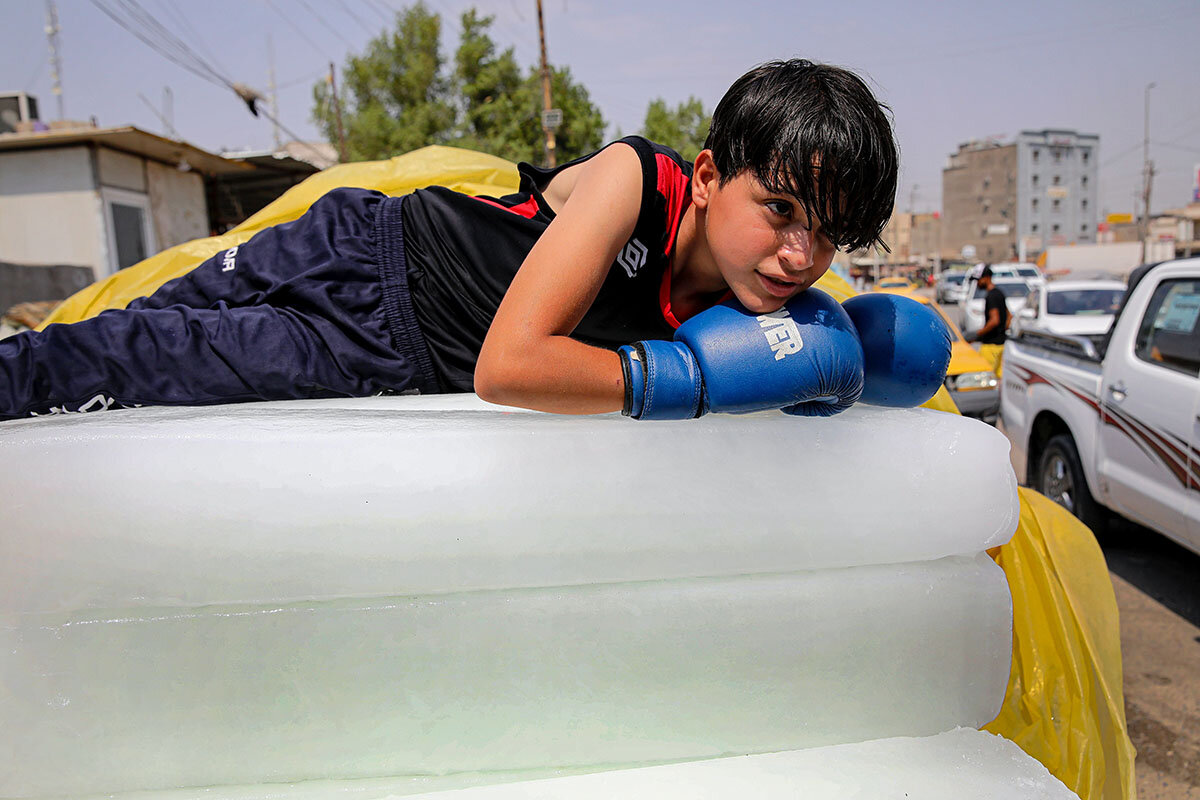
A look ahead
Thank you for joining us today. Please come back tomorrow when our Harry Bruinius shares a portrait of the humanity he has seen reporting in Surfside, Florida, the community hit by the condominium collapse last week.




